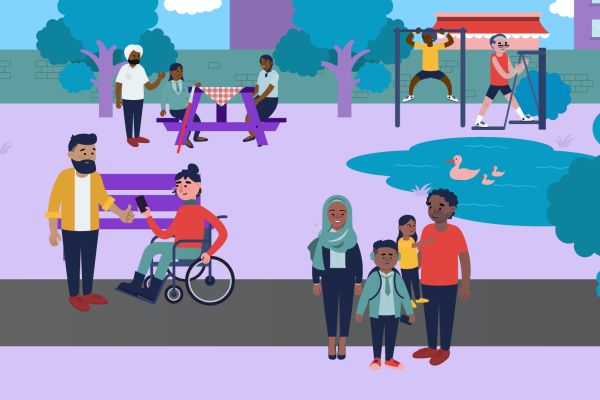Students feel that university counselling has a positive impact on their ability to study, being able to remain on their course and overall student experience, according to new research.
The study, published in the journal Counselling and Psychotherapy Research, also found that university counselling helps reduce psychological distress, with the research having similar results to previous studies.
But it’s the results about the positive impact of counselling on academic outcomes and students’ overall university experience that have been captured by the research that are most notable.
The researchers say these results show that university leaders should recognise the potential impact of university counselling services on broader student outcomes, and not just students’ mental health.
They recommend that university counselling and mental health services need to be appropriately funded and resourced.
And they say that university counselling services should “contribute to whole university approaches in which student wellbeing is recognised as pivotal in the educational journey.”
Why the research is important
Our Research Fellow Robert Scruggs, who led the study, said:
“The two broad findings from this study are that students feel the impact of their problems on their studies lessens following a period of university counselling, and that students recognised counselling to be a factor in improving academic outcomes. It demonstrated that students had fewer thoughts of leaving university, believed they could study better and began to have a better overall student experience.
“Counselling and psychotherapy research often focuses on psychological distress, but this research demonstrates that counselling also has a positive effect on our occupational activities – it’s capable of helping people engage with their studies.
“Counselling available as part of the university environment is a precious resource that needs essential funding. Embedded university counselling services have the real potential to improve academic outcomes for students.”
How the research carried out
The study was carried out as part of the Student Counselling Outcomes Research and Evaluation (SCORE) consortium. SCORE is a collaborative project with university and college counselling services to create a shared routine outcomes database and build evidence for the sector.
Data for the study was collected from 479 students who received university counselling; part of the wider SCORE dataset.
The students completed a Clinical Outcomes in Routine Evaluation—Outcome Measure (CORE-OM) and a Counselling Impact on Academic Outcomes (CIAO) questionnaire.
What the research findings were
The study found that 83% of participants found counselling helpful for academic outcomes to at least a limited extent.
- 78.3% felt that counselling had helped them stay at university to at least a limited extent.
- 90.6% said counselling had helped them do better in academic work to at least a limited extent.
- 84.8% said that it had improved their overall student experience to at least a limited extent.
- 75.8% responded that it had helped them develop employability skills to at least a limited extent.
- 80.9% felt counselling had helped them to improve their self-esteem to at least a limited extent.
- 78.6% responded that it helped them feel more positive about the future.
The research paper said: “Overall, our results are consistent with the view that university counselling services support the whole student journey rather than solely focussing on reducing psychological distress.”
Read the paper
Read the full open-access paper The impact of psychological distress and university counselling on academic outcomes: Analysis of a routine practice-based dataset

Promoting research
Research is important for clients, for practitioners and politically to continue to demonstrate that counselling changes lives.

University counselling effective in reducing students’ distress, research finds
The researchers say the results demonstrate the value in pooling data from higher education counselling services

Mental Health Research Matters
We believe that counselling changes lives and that's why we’re supporting the national #MentalHealthResearchMatters campaign. Check out our blogs, articles and other resources.
